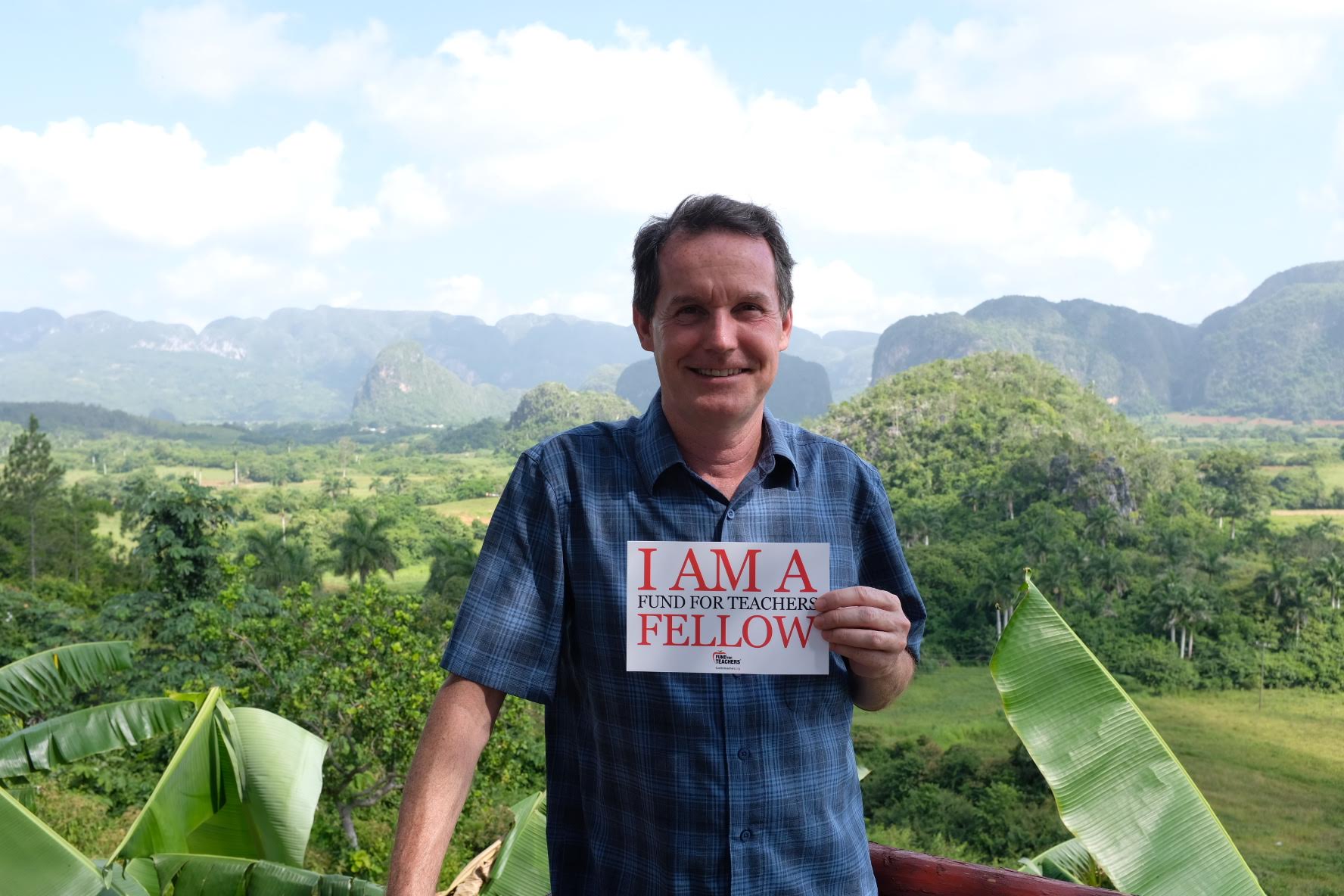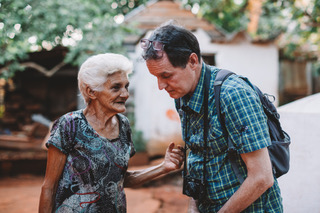This fall, Fund for Teachers introduced a new Circles program bringing Fellows together around various topics. This effort coincided with teachers’ return to school in the midst of a pandemic, so we were uncertain about interest and participation level. What we discovered, however, is that our grant recipients remain life-long learners despite the circumstances and the result has been life-giving for them and inspiring for us.
 Members of Fund for Teachers’ Equity and Justice Circle began their final meeting of the semester by watching a Ted Talk inspired by a Martin Luther King, Jr.’s quote: “In the end, we will remember not the words of our enemies but the silence of our friends.” Reading critically, writing consciously, speaking clearly and telling your truth, according to the speaker/teacher/poet Clint Smith, are the four core principles posted in his classroom. These same principles could summarize the first collaborative learning experience undertaken by eight FFT Fellows around a timely topic.
Members of Fund for Teachers’ Equity and Justice Circle began their final meeting of the semester by watching a Ted Talk inspired by a Martin Luther King, Jr.’s quote: “In the end, we will remember not the words of our enemies but the silence of our friends.” Reading critically, writing consciously, speaking clearly and telling your truth, according to the speaker/teacher/poet Clint Smith, are the four core principles posted in his classroom. These same principles could summarize the first collaborative learning experience undertaken by eight FFT Fellows around a timely topic.
Last summer, Fund for Teachers selected from applications a cohort of ten Fellows to attend a three-day Teaching for Equity and Justice webinar presented by Facing History and Ourselves, an organization dedicated to fighting bigotry and hate with lessons from history. Then, after full days of teaching virtually, the educators returned to Zoom for dialogue about race and culture with the goal of crafting an action plan to impact their students and school community.
Read more about Fund for Teachers Circles here.
“I did a lot of work on social justice fifteen years ago and I thought, ‘I’ve done the work! Good job!” shared 2019 Fellow Tim Flannagan, teacher at Stonington Middle School in Mystic, CT. “But after the murders of George Floyd and Breonna Taylor, I wanted something more tangible than reading books and discussing with all white peers. I knew Fund for Teachers would do this well, and the resources and reflections, check ins and follow ups have increased discourse and equipped us to take informed action.”
Tim recently launched the Family Anti-Racist Circle in which students and their caregivers (or a member of the staff) read, discuss and identify ways to remedy racism in their community. He secured funding from local foundations obtain 5 copies of 15 books from which students can choose. After the read, Tim will then lead the group in brainstorming and researching ways to address an issue of equity and justice to develop a plan that to implement in the spring.
“I’ve attended several Fund for Teachers events since my fellowship in 2018, and one of the first questions asked during these meetings is Where did you travel on your fellowship? It occurred to me that no one asked that question in the Equity and Justice Circle. It’s not that we’re not interested, it’s just that our work has a sense of urgency and every minute of our sessions is so purposefully planned so that we leave one step closer to accomplishing our goals. Thank you to Fund for Teachers and Facing History and Ourselves for connecting me with this professional learning community and empowering me to create a more equitable and just classroom and school.”
[minti_divider style=”3″ icon=”” margin=”20px 0px 20px 0px”]
In 2018, Tim used his Fund for Teachers grant to join a photography tour in Cuba with professional artist and documentarian Louis Alarcon to create learning that combines insights about the island nation with photography and digital literacy skills. In addition to his Fund for Teachers grant, Tim also completed a Fulbright fellowship in Vietnam and received additional grants to learn in Kyrgyzstan, Morocco, Germany. Tim has also taught in Brazil and Bolivia. Read about his fellowship here and learn more about his practice on his website, The Alternate Route.



